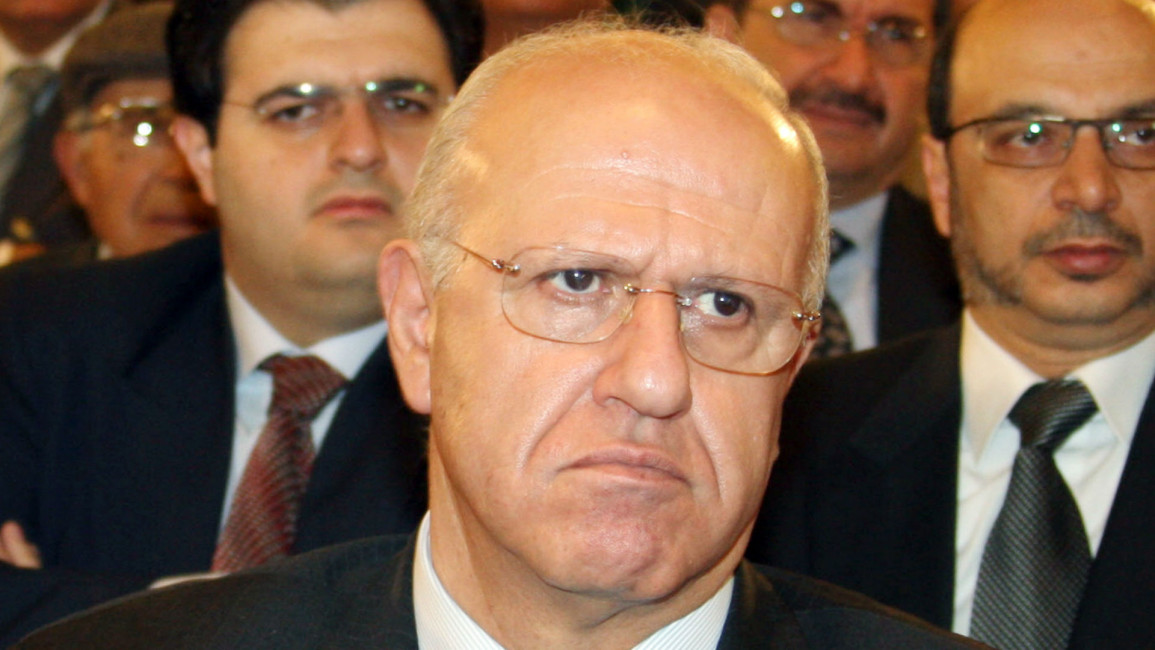
Michel Samaha: Assad's right-hand man
Michel Samaha, Lebanon's former information minister, told a court on Monday that he was involved in the smuggling of explosives into Lebanon, through Syria's security chief, Ali Mamlouk.
Whether Samaha was lured into this plot, or if he performed his role willingly and intentionally, is not the point.
It is up to Lebanon's judiciary to shed light on this.
False trap
One's knowledge of Samaha would be enough to know that Samaha is too intelligent to be easily lured into a trap of this kind.
Aside from the judicial details, which are very important, Samaha's admission on Monday at the first session of his trial confirms two points.
Firstly, he confessed to being responsible for transporting explosives from the office of Mamlouk, one of Bashar al-Assad's most notorious strongmen. This illustrates the mentality of the Syrian Baath party towards Lebanon, its parties, and its political groups over the past 40 years.
The Baath party, under the leadership of Hafez al-Assad, the father, and Bashar, the son, always gave Lebanon just two options.
Either she could give into the diktats of the Syrian regime and serve all her demands, or be at the receiving end of horrific violence.
| Jumblatt turned down Assad's demands [in 1976]. One year later, Jumblatt was assassinated. |
This has been illustrated numerous times, beginning with a meeting between Hafez al-Assad and the Lebanese political leader Kamal Jumblatt in 1976.
During the encounter, Jumblatt turned down Assad's demands. One year later, Jumblatt was assassinated.
Take your pick
The logic of the Syrian regime was witnessed repeatedly throughout the civil war in Lebanon. Several parties that had opposed Damascus were targeted.
This included the besieging of Palestinian refugee camps - a repeat of this being seen today in Yarmouk camp - while national resistance leaders were assassinated.
Since the civil war, not much has changed. We have seen this through the evidence presented to the special tribunal for Lebanon into the assassination of the former prime minister, Rafik Hariri.
Hence, the Samaha-Mamlouk explosives smuggling case is the rule rather than the exception.
The exception here is that the information made its way to the Lebanese judiciary, backed by irrefutable evidence. Lebanon's anti-Damascus intelligence chief, Wissam al-Hassan, paid with his life for putting the case together.
The case shows that a common Lebanese national identity, of even a basic level, does not exist.
Some 1,000 days after the discovery of the Samaha-Mamlouk plot - which could have propelled Lebanon into a much bloodier confessional struggle than today's - some in Lebanon still defend Samaha and the Syrian regime.
Worse than that, some continue to send thousands of young Lebanese men to defend the regime on the basis of a narrow sectarian identity.
Many of these young men have been killed. Their mothers refuse to weep.
They believe that their sons died defending a despotic regime that happens to share a similar confessional cause to their own.
Thaer Ghandour is a journalist based in Beirut.
This article is an edited translation from our Arabic edition.
Opinions expressed in this article remain those of the author and do not necessarily reflect those of al-Araby al-Jadeed, its editorial board or staff.




